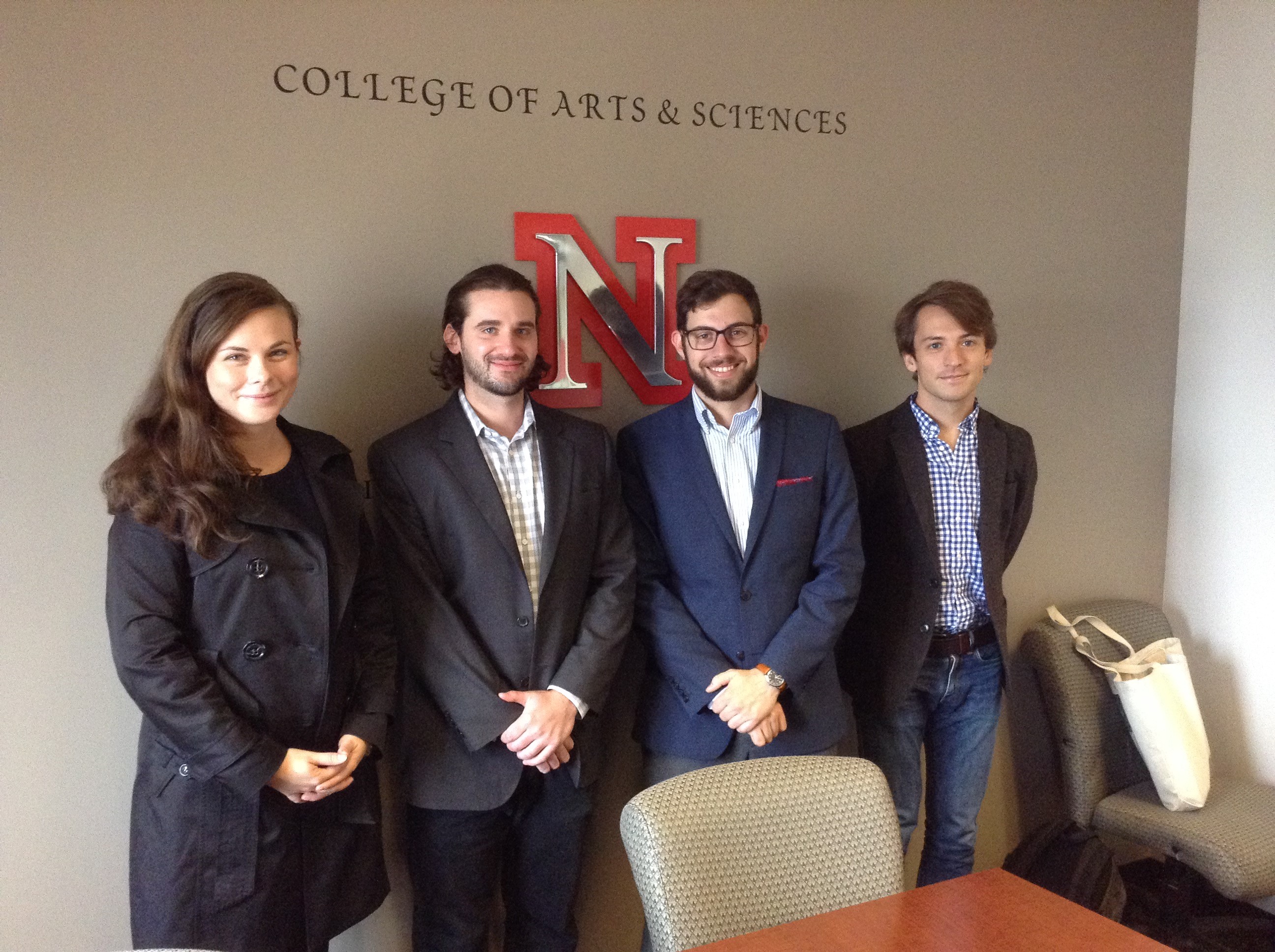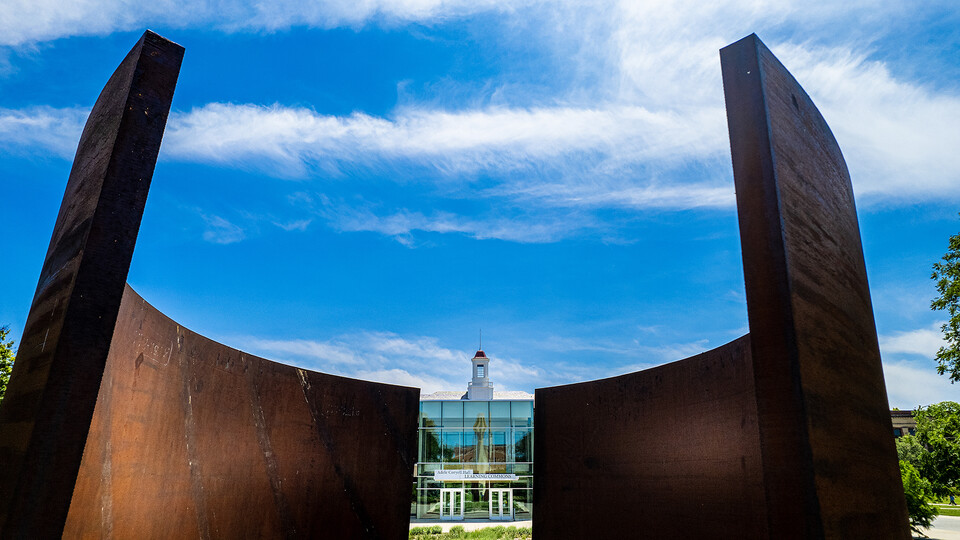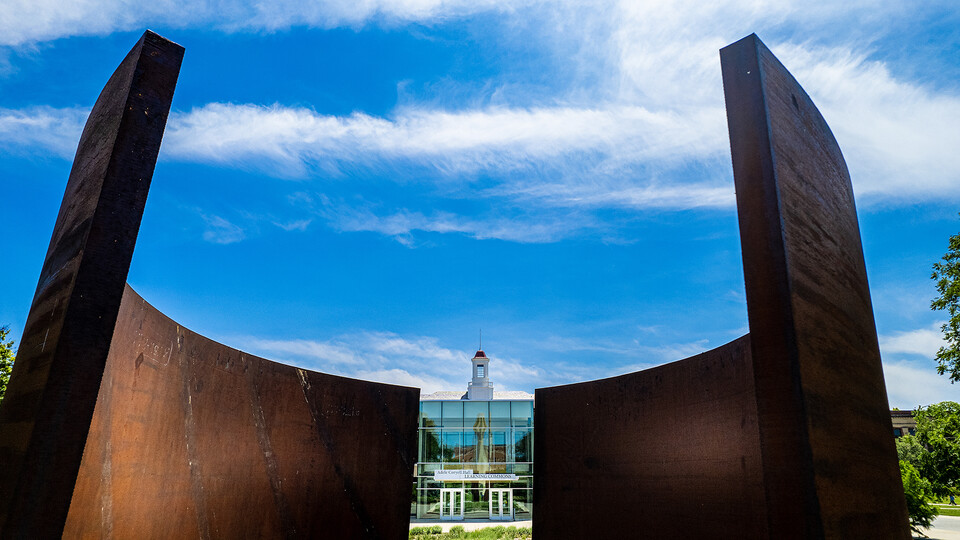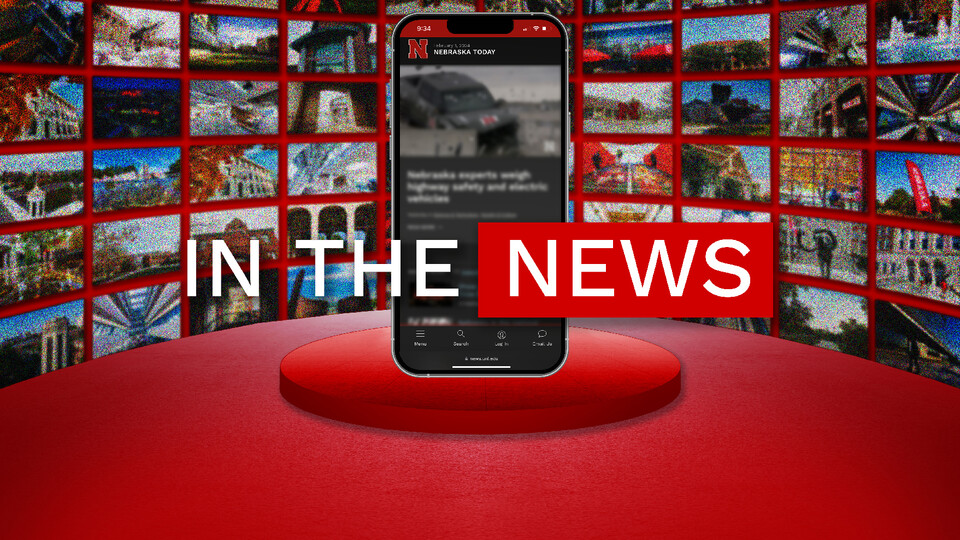
Above: Rach Crawford, Matt Daddona, Noah Ballard, Andy Kifer, and Lucy Koch.
Imagine being a first time writer trying to get the book you finally finished published. It can look like an uphill battle. The publishing industry is a big, confusing puzzle. To complicate it further, you're a university student trying to finish a degree.
How do you get feedback and connections from professionals in the publishing industry?
Enter Publishing Week.
Four publishing professionals visited the Department of English this year for three days during the inaugural Creative Writing Month.
- Noah Ballard is an agent at Curtis Brown Ltd and an alumni of the Department of English.
- Rach Crawford is an agent with Wolf Literary Services.
- Andy Kifer is an agent with The Gernert Company.
- Matthew Daddona is an editor with Dey Street Books (an imprint of HarperCollins), a poetry submissions reader for Slice Magazine, and a senior editor at The Scofield.
They worked one on one with graduate students to provide industry insight, editing advice, and assistance with finding an agent for their work. Each also led a workshop, and all four participated in the panels “What’s next?” and “What are editors looking for?”
Literary agents are a crucial part of publication, and finding an agent who will represent your work is difficult. For the last four years, Jonis Agee, Adele Hall Professor in the Department of English, has brought professionals to the students to help them make those connections.
As a Nebraska alumni (English minor) and aspiring writer, I was excited to meet folks from the industry and find out what it’s like for them to work with our students. I also wanted to hear about the publishing world from their point of view: how they got there, advice for writers, and their most interesting project.
We had a great conversation that offered insights I had not come across before, despite reading numerous “how to get published” articles.
Here is my conversation with them on the second day of Publishing Week, edited for length and clarity.
* * *
O’Connor: You’ve given workshops and met with graduate students at this point. What has stood out for you so far?
Noah Ballard: it’s nice to get out of New York for a little while and just focus on craft for a couple days. I feel like we get into our own heads pretty good living in New York thinking we’re in this bubble, but it’s nice to sort of remove ourselves from that, just to realize that there are other writers all over the country and all over the world, and to be part of that and have as much fun as we can and to realize that’s ultimately sort of the purpose of what we’re doing in a bigger sense.
Andy Kifer: I think we’ve all been impressed with the quality of the writing and thinking we’re seeing in the students so far.
Matthew Daddona: I think I’m impressed, we talked a lot about this, with the tight knit community that the graduate students have, seems less of a competitive edge and more like a really nice bond that they all share.
Rach Crawford: And I think that supportiveness comes across just in the enthusiasm that we’ve felt and what we’ve had this year. It’s in the conversations. It’s been a pretty amazing experience.
O’Connor: How do you approach and work with graduate students at a university, as opposed to writers from other backgrounds?
Crawford: I think that a graduate student just has a higher base level of knowledge. I work with a lot of people who don’t have an education in writing, and it is a different level of conversation, and I think that they’re coming to you with a book or with a project that’s just so much more advanced in terms of where they’re at with it. It’s just really great and it means that as an agent you get to do a whole different level of thinking in terms of craft and conversations that you’re having with others.
Daddona: Yeah, I think graduate students more than anyone, they understand the work that’s needed to put into a bigger work, a body of work, and not just one book but subsequent works, whether it’s from research or just reading titles that are in that kind of theme.
Ballard: I think, too, because it’s a Master’s PhD program that the writers being able to, a level of communication about the work because they spend so much time teaching, the overall endgame is to teach and continue that community there, that conversation there. I feel like they’re all so generous because they spend a lot of their time figuring out how to express these things on a level, not only on the page but also in the classroom, and that makes for a pretty easy conversation and stimulating conversation.
Kifer: These writers are really, you know, a book is really part of their professional development. I think with other people I work with are maybe older, sort of have their careers already, not related, and a book is a surprise, or an icing on the cake, and it makes for a different dynamic, talking about someone’s work in terms of the necessity of the book existing.
Crawford: I’ve really felt that the people that I’m meeting here are kind of career writers, and that’s the most important thing, and I think that’s really exciting.
Ballard: They also understand the realities of the job market, too. I feel like we probably all spend a lot of time, you know, having people write these books, and if they’re not in this sort of community or this program already, they don’t understand the reality’s that your first couple of books are going to be a hardship financially if that’s your only source of income. But I think we’ve seen (that) everyone’s so realistic, because they’re focused on teaching ultimately. They sort of know the game. Like Andy said, it’s part of their professional development, that these books are going to be something on their resume ultimately, to find these tenure track teaching positions. That adds a little professionalism I think, too.
O’Connor: Noah, what is it like to be back on campus? How do you view the students and the college education now that you’re in the industry?
Ballard: It’s kind of surreal, it’s my fourth year back after graduating. Lincoln has gotten a lot bigger since I was in school. It’s nice to revisit old places but also get to know new places down in the Haymarket. But it’s nice. That’s one of the reasons that I like coming back is that I wish I had had more contact with the industry when I was an undergraduate. I didn’t know what a literary agent was up until my senior year and that was because I took such an active interest in publishing and then worked with the writers, like Jonis Agee and Tim Schaffert and people like that who took it out of their own time to explain to me how the industry works. But I feel like that I can provide that sort of context for these students. I think that it’s rewarding both ways.
O’Connor: How and why did you get into the publishing industry?
Ballard: I came to UNL uncertain about what I wanted to do and landed on English as my major later in my tenure here and then met these great professors, Tim Schaffert, Jonis Agee, the late Gerry Shapiro, and they just really inspired me through workshops. I wanted to do something like this, whether it’s the writing side, whether it’s the critiquing side, whether it’s just helping the cohort out with the work they’re trying to do. In my junior year, I wrote a novel with Jonis Agee, and she sent it to her agent at the time. Nothing ended up happening with that, but when I came back to the city I had a set of connections that allowed me to move to her office as her assistant and start working with my own clients eventually and moving to a bigger agency.
Kifer: In my first year out of college—I had been an English major—I starting noticing on all the books on my shelf all had the same thing on the spine and it was FSG’s colophon, and I was kind of clueless about what I wanted to do with my life and I found an internship on FSG’s website. And I moved to New York for an internship with FSG, and that was my first step. Noah actually writes, I don’t, but I really like the idea of, if I can’t write myself, I like the idea of helping other people who are better at it than I am make their way.
Crawford: I grew up in small town Australia, and I didn’t know any people in professional roles, and I went to university, in a creative degree, and at some point I was in these workshops and someone said to me, “Oh, so you want to be an editor.” And I had never heard of that job, and I never thought about publishing because it was so far out of my sphere of knowledge. But from that point I was like, yes, I wanted to be in books. I learned about agents, and I moved to New York in 2011 after several years in publishing with the express desire and goal of becoming an agent, and it was just something I knew I wanted. And I can’t actually imagine what I would do if I couldn’t be in books.
Daddona: I was a journalism major in Philadelphia, and I took an internship the summer going into my junior year in New York, and I went on a whim. I knew what book publishers were, but I didn’t think I was interested at the time. But it was a good opportunity and I took it, and then through that door I really got into it in back-to-back internships through graduation. And that seemingly was the only thing I wanted to do after. So, I think the internship was really helpful. I think for all of our development, I think we’ve all done internships. I think it’s interesting we all have the same sort of reaction, like “I can’t think of anything else I would do.”
O’Connor: Most important tip for aspiring writers? Or, the most important thing you’ve learned about the publishing industry.
Crawford: I think my biggest thing for aspiring writers is to read and read and read. Read things you wouldn’t necessarily be attracted to. Read pulp novels, read high artwork, read translated books. Just read everything.
Ballard: I think that’s the big learning curve for people outside the graduate program is realizing that you are in a conversation with these other writers if you are published, because that’s how the readership functions. They read one book and, oh, I really like that. What’s next? And you have to position yourself, with the help of your agent and publisher, (you) have to be in conversation with other things that are happening so a readership can come to you. And I think that’s just the responsible way to be a writer, and it also is a self-perpetuating system. You’re buying books and you’re celebrating these other authors, you’re investing in your own future, you’re investing in the advances that will be spent on you.
Daddona: My advice is to understand and appreciate that the original manuscript that you have either written or turned into your agent, will change, every time, whether it’s fiction or nonfiction. And it will probably take several forms. I think a lot of writers get stuck on that first draft and thinking that might be their best thing or, especially with a lot of nonfiction that I edit, that their structure is the correct one. Agents edit so much now, and it’s such a vital part of the job.
Ballard: When I tell writers how to write a query letter and how to reach out to an agent, I always say the first step is realizing that the second you write that query letter it’s going to be a collaborative process. So you have to be able to – if you want to be able to be a published writer in the business of publishing, you have to understand that anything can be tailored, anything can be edited, anything can be tweaked, and you have to be open to that, or otherwise you can’t be part of that mechanism.
O’Connor: Most interesting/unique book that you worked on?
Ballard: The first year I was out here, when Jonis invited me out, she emailed me: Can you meet with this doctor friend of mine. He’s working on this memoir. So I sat down with this guy, Bud Shaw. He was not just a doctor. He’s one of the surgeons at UNMC, and a professor over there for first year medical students, and he was on the first liver transplant team in Pittsburgh. And he had written this novel that takes his experiences as a man living in Pittsburgh being a doctor and then also the flip side of it, what it means to heal, what it means to help people, and save and lose lives. I read a couple thousand words of it. It was in a rough inspiration form and I read it and was blown away by it. I immediately got back to New York and I sent Matt (Daddona) a couple excerpts and we signed that book up pretty quickly.
Daddona: Yeah, this was one of those weird publishing stories that never happens.
Ballard: It was really great, and the book has sold pretty consistently too. It’s been adopted by some medical schools for their first year students. You just need to understand the narrative of what it means to heal. All the feedback I’ve gotten from it, I sent it to some friends and some family who have gone through transplantation drama and stuff in their own lives, and they all said it’s been so meaningful and eye-opening to understand.
Kifer: The weirdest book I’ve done lately is this very short sort of hybrid natural history slash illustrated kind of weird journal thing that came to me from an Iowa Workshop Writer’s grad. It’s one of those things where I had a hard time selling it to a big publisher, but I found a very small publisher for it. I’m excited to see what happens with it.
Daddona: I would second, I thought our experience working with Bud (Shaw) was amazing. I’ll just throw in, my first book I edited at Penguin was the novel, Why are you so sad? It’s almost a novella, it’s a satire of corporate culture. It was hard to market, but I’m proud that we got it out.
Sidebar: On "selling" with passion
Ballard: That’s the great thing about all us being young and still have our idealism intact. Andy and I were talking about this the other day. We often feel more emotionally moved by these tiny little books that we saw something in. I met this woman through mutual friends, and she had written this insane little book. It was like a fake memoir written by this accidental artist who is this schmuck from the Midwest who comes to New York and his compulsion is to cut people’s hair when they’re not looking and he makes art out of it. And I thought it was hysterical. I sold it for no money. But there’s an editor who believes in that book, and the writer was so excited about it. That means more to me.
Crawford: When I worked in foreign rights, I met with an editor. At the start of lunch, she said, I’m not buying anything at the moment. But she ended up asking me what are you working on, what are you doing at the moment? So I’m telling her about a book that I loved, and by the end of lunch she had offered on it. (Laughter). And that was only because I loved it so much and that I convinced her. I wasn’t at that point necessarily aiming to sell, but of course you’re always thinking about it, but that was a beautiful moment and that was purely the fact that I loved that book. It meant that author was going to be published in Brazil, which is pretty nice.
Ballard: I think that’s the nice thing about publishing, as opposed to Hollywood or something like that. We’re never really in sales mode. It’s just, when you’re out to lunch with someone, or having drinks with someone, it’s just two people connecting. Like when I’ve connected with editors on projects, we’ve both loved the book. It’s not that we saw this as a lucrative investment. I mean, that’s part of it, but ultimately, the writing spoke to me, something about the story spoke to me. Let’s work on this together. Let’s create something. It’s not been money heavy.
Daddona: The marketing speak and the sales speak comes after. You have to learn that for your job. But you’re right, the first thing to bond on is the editorial side.
Crawford: When we are hiring interns, as much as a professional background (is important), the people who are the top candidates are the ones who can geek out. And it comes across.
Daddona: I don’t consider myself a sales person, and I think that the secret to publishing is you can sell anything well if you just are actually telling the truth when you say how good it is, and that the only job of an agent is to find something so good that you are just telling the truth when you are describing why you love the book.
Ballard: Unlike anything else, especially for fiction, you can’t fudge it. They’re going to read the book. (Laughter). That’s the equalizer in the industry is your taste.
Crawford: That’s why you should never be too disheartened if you’re getting rejections as a writer as well because when agents say, I have to really love it to do it, it’s very true, because it is such a passion driven industry.
Ballard: Well, that’s the thing for agents, too, as opposed to editors. Editors are signing up books but agents are signing up clients. And that could be for the rest of their lives that they could work together. And then to make these snap decisions based on just a couple pages. Do I want to work with this person for the rest of my life, conceivably? So, it’s a relationship like any other. I can see what’s great about you, but I don’t think you’re my person, kind of a thing. (Laughter).
Kifer: If you can’t stop thinking about it, I think that’s probably a good sign.
O’Connor: Anything else you’d like to talk about?
Ballard: (Bud Shaw’s book) was a home grown thing at UNL. And then the other one we have too is this guy Nick White who is a PhD student, we sold his book to Matt in a two book deal, and that led to him getting a tenure track position at Ohio State. I think it’s been a pretty beneficial relationship that I’ve had with UNL and the English department has had with me. And that’s why, hope to keep doing this, bring out new agents, bring out new people to let people know there’s really good writers here, whoever invites the writers in and then works with them and grows their talent is definitely doing something right.
Kifer: (To the others in the room) I think there are probably a lot of writers you guys encounter where, back to that relationship thing, the book they’re working on now might not be that book that will sell, but you really trust in their writing, want to work with them, think they have a lot of talent. I’m sure you guys encounter that a lot where sometimes you have to tell them this might not be the book you sell in its current form, but I want to work with you and believe in you.
Ballard: Yeah. And that’s the thing too, the idea of, going back to your previous question about background of graduate students as opposed to people who don’t have a degree, is the idea that they’re going to keep doing this. This is part of their life and their profession. Like, well, if my debut doesn’t sell, I learned how to write a novel. I’m going to take what I learned from that and move on to the next thing, keep writing, keep writing. Having a B.A. or an MFA or a PhD in this sort of world lets me know on your resume that you are committed to that. Other agents I’ve spoken to in conferences and in personal conversations have echoed that. While an MFA or a post grad degree is not necessary, it’s just an easy way to prove how dedicated you are to the craft.
O’Connor: Building a community like you were discussing.
Ballard: Right. When the book sells, and then when we’re trying to get booksellers excited about it, it’s all about that community, like you see. Like the blurb on the book, this is the best book ever, you should read it. That’s usually a friend of theirs or a friend of mine or a friend of the editor’s who just said of course I will write an endorsement for that book. Those aren’t even really for the reader; they’re to get the booksellers excited and know that, oh, if we potentially have this person in, these potential readers will come to the reading, or we can hand sell it that way. So it’s all about establishing, yes, this community there, from the seed of inspiration in this writer in Lincoln, Nebraska, all the way across the country, however many hands have touched it to all the booksellers across the world.


